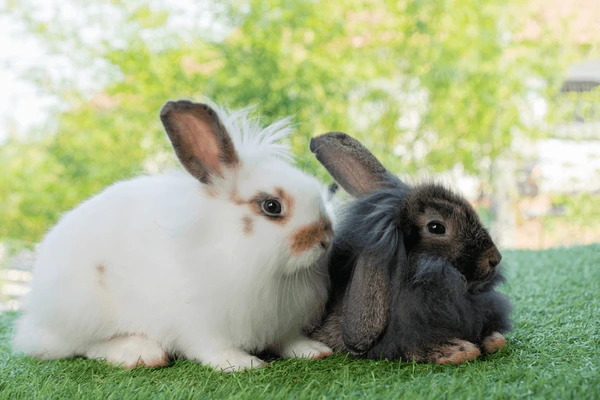
Rabbits are adorable, social, and intelligent pets, making them a great choice for many households. However, they require proper care, attention, and commitment. If you’re a first-time rabbit owner, it’s important to understand their unique needs to ensure a happy and healthy life for your new furry friend. This guide will walk you through everything you need to know before bringing a rabbit into your home.So let’s briefly discuss that- Do Rabbits Make Good Pets?
Are Rabbits Good Pets for Beginners?
Rabbits can make wonderful pets, but they are not as low-maintenance as many people assume. Unlike cats or dogs, rabbits require specific housing, diet, and daily care to thrive. Before deciding to get a rabbit, consider whether you have the time, space, and financial resources to care for them properly.
Choosing the Right Rabbit
Not all rabbits are the same! There are over 50 different rabbit breeds, each with unique characteristics. Some important factors to consider when choosing a rabbit include:
- Size: Smaller breeds like Netherland Dwarfs require less space but can be more energetic, while larger breeds like Flemish Giants are typically more docile but need more room.
- Temperament: Some rabbits are shy and reserved, while others are playful and affectionate.
- Lifespan: Rabbits live 8-12 years on average, so be prepared for a long-term commitment.
- Grooming Needs: Long-haired breeds like Angoras require frequent grooming, while short-haired breeds need less maintenance.
Setting Up Your Rabbit’s Home
Rabbits need a safe, comfortable, and spacious environment. Here’s what you’ll need:
1. A Spacious Enclosure
- Minimum 8-12 square feet of space per rabbit
- Indoor pens or large hutches (outdoor enclosures must be predator-proof)
- Soft flooring to prevent sore hocks (avoid wire-bottom cages)
2. A Litter Box
- Rabbits can be litter trained, making cleaning easier
- Use rabbit-safe paper-based litter (avoid clay or clumping litter)
3. Chew Toys and Enrichment Items
- Rabbits love to chew, so provide wooden chew toys, hay cubes, and tunnels
- Cardboard boxes, tunnels, and foraging toys keep them mentally stimulated
4. A Comfortable Sleeping Area
- Provide a cozy hideout or small box where they can feel safe
- Soft, clean bedding made from hay or fleece
Understanding Rabbit Behavior
Rabbits communicate through body language and subtle sounds. Here are some common behaviors:
- Binkying: A happy, excited jump with a twist (indicates joy!)
- Flopping: When a rabbit lays on its side, it means they feel completely safe
- Thumping: Stomping their back foot is a warning sign or expression of fear
- Nudging: A way of saying, “Pay attention to me!”
- Chinning: Rabbits rub their chin on objects to mark their territory
Understanding these behaviors will help you build a strong bond with your pet.
Feeding Your Rabbit the Right Diet
A rabbit’s diet is crucial to their overall health. Here’s what they should eat daily:
- Unlimited fresh hay (Timothy hay for adults, alfalfa hay for young rabbits)
- Fresh leafy greens (Romaine, parsley, cilantro, and kale)
- Limited pellets (1/4 cup per 5 lbs. of body weight)
- Occasional treats (Fruits like apples, bananas, and strawberries in moderation)
- Plenty of fresh water (Use a bowl rather than a bottle for easier access)
How to Handle a Rabbit Properly
Rabbits have delicate spines and must be handled with care. Follow these tips:
- Never pick them up by their ears or scruff
- Support their hind legs and back when lifting
- Let them come to you instead of chasing them
- Sit on the floor and interact at their level
If handled improperly, rabbits may become frightened and resist human interaction.
The Time Commitment for a Pet Rabbit
Many first-time owners assume rabbits are independent pets that don’t need much attention. However, rabbits require at least 3-5 hours of supervised playtime outside of their enclosure every day. They also need daily feeding, cleaning, and interaction to stay happy and healthy.
Common Health Concerns in Rabbits
Rabbits are prone to several health issues, so it’s important to recognize symptoms early. Common problems include:
- Gastrointestinal stasis (GI stasis): A life-threatening condition where the digestive system slows down (signs include loss of appetite and small droppings)
- Dental problems: Overgrown teeth can cause pain and eating difficulties
- Ear infections: Lop-eared breeds are more prone to ear infections
- Obesity: Caused by lack of exercise and improper diet
- Regular vet checkups and a proper diet can prevent many of these issues.
Grooming and Hygiene
Keeping your rabbit clean is essential for their health. Grooming requirements include:
Brushing: Weekly for short-haired rabbits, daily for long-haired breeds
- Nail trimming: Every 4-6 weeks
- Ear checks: Look for wax buildup or infection
- Litter box cleaning: Daily spot cleaning, full change every week
Can Rabbits Live With Other Pets?
Many first-time owners wonder if rabbits can coexist with cats or dogs. The answer depends on the temperament of both the rabbit and the other pet. Rabbits are prey animals, so they must be introduced carefully. Some important tips:
- Supervise all interactions until you’re sure they get along
- Create safe spaces where the rabbit can retreat if needed
- Avoid leaving them alone together until trust is fully established
Should You Get One or Two Rabbits?
Rabbits are social animals and often do best with a companion. Consider adopting a bonded pair if possible. If you plan to get two rabbits, it’s best to:
- Adopt a pre-bonded pair from a rescue
- Spay/neuter both rabbits to prevent aggression
- Introduce rabbits in a neutral area to build trust
Final Thoughts: Are Rabbits Right for You?
So, do rabbits make good pets for first-time owners? The answer depends on your level of commitment. Rabbits are affectionate, intelligent, and fun companions, but they require time, space, and proper care. If you’re ready for a long-term commitment and willing to meet their needs, a rabbit can be an incredibly rewarding pet.
Before bringing a rabbit home, do thorough research and ensure you have the time, budget, and dedication to care for them properly. With love and patience, rabbits can become cherished members of your family.



